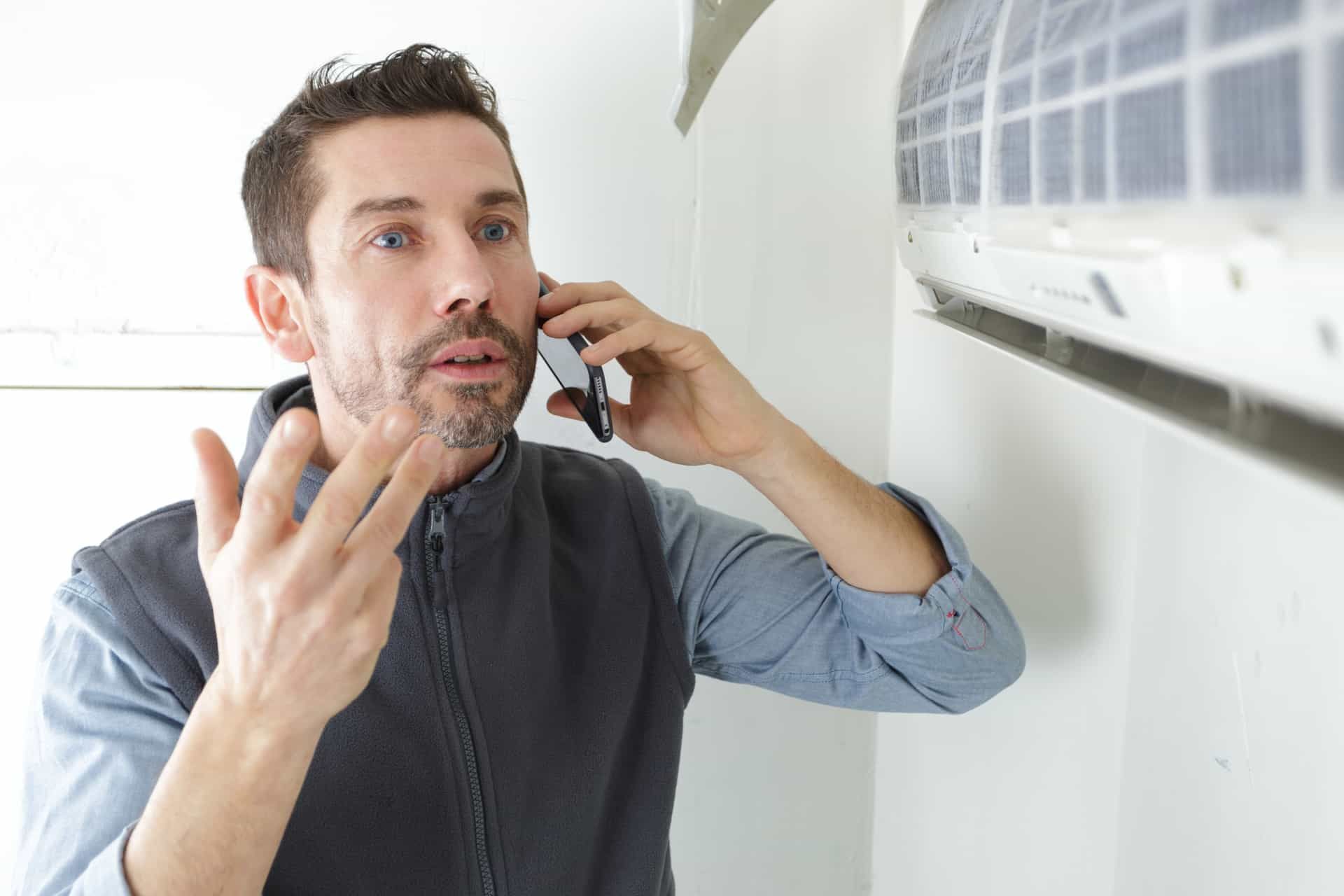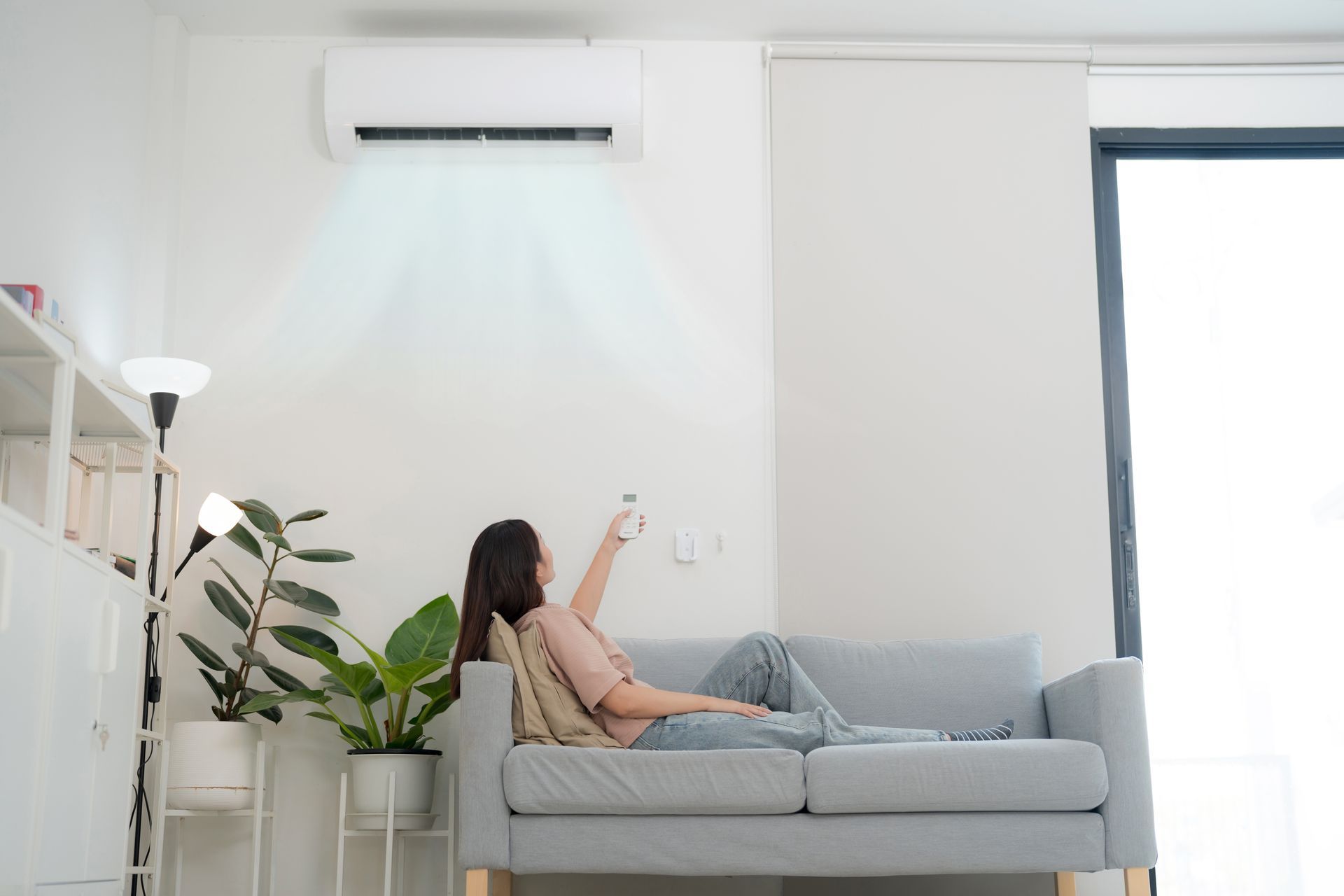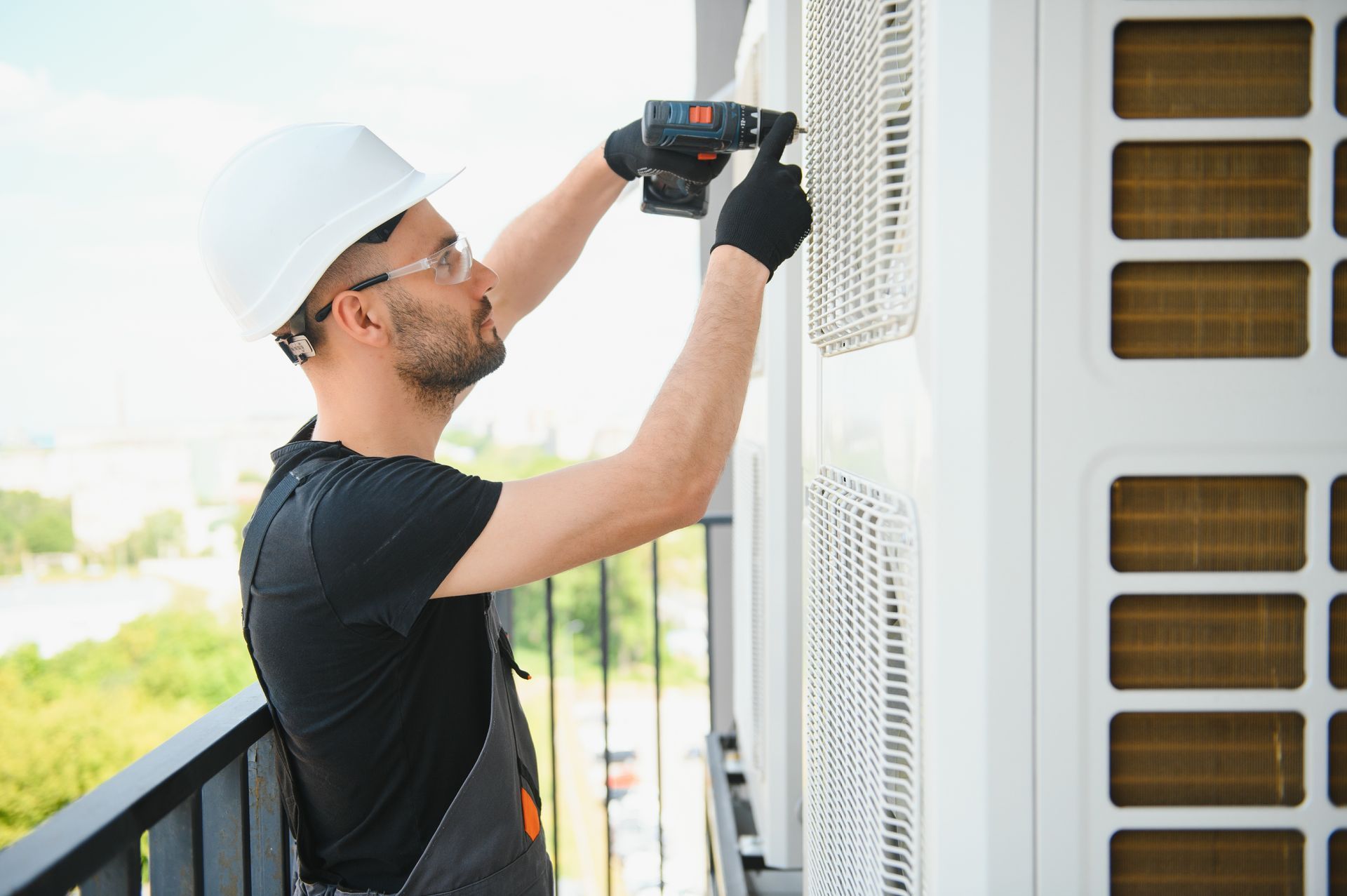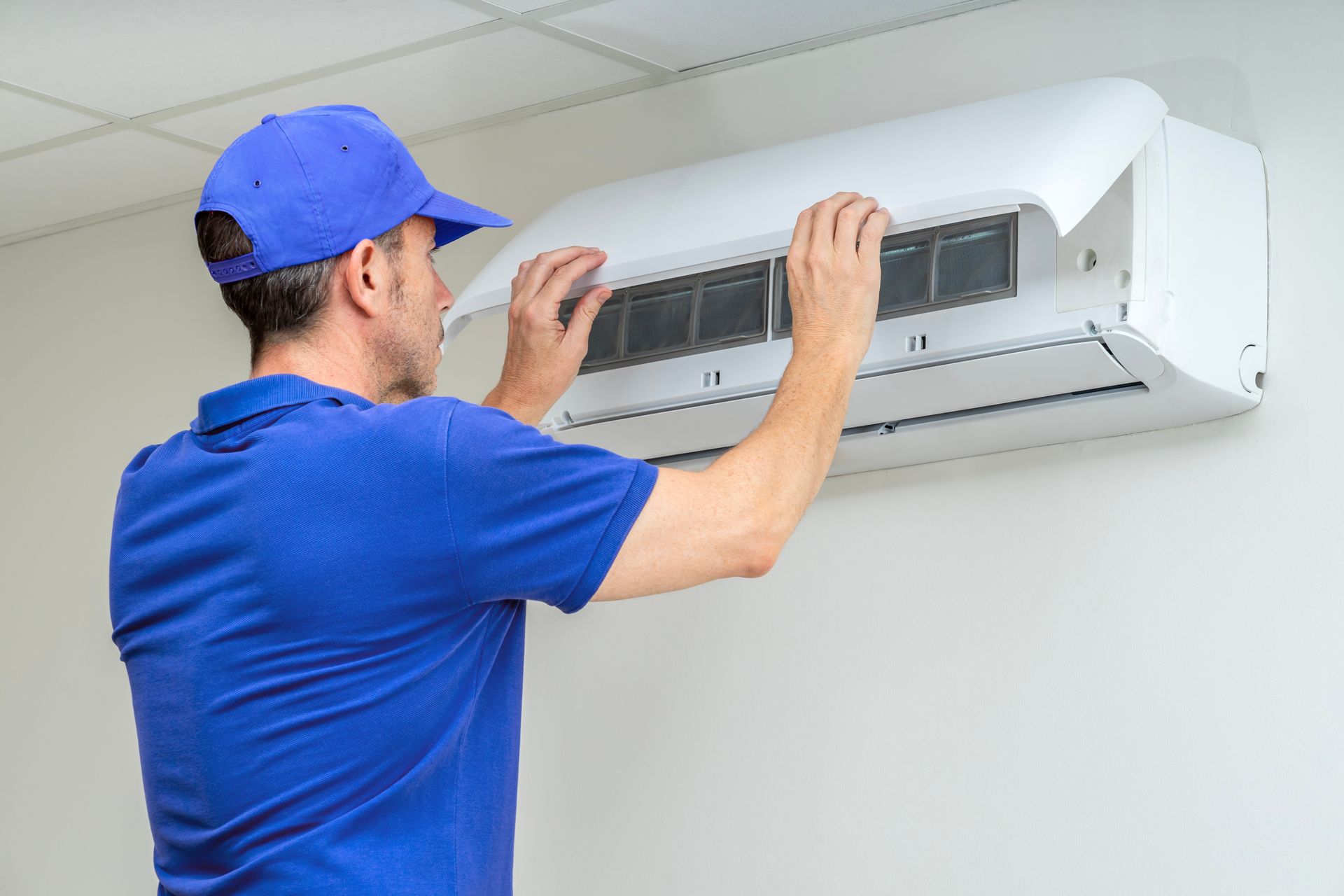Common HVAC Problems and How To Fix Them

Your HVAC system works hard to keep your home comfortable year-round. But like any machine, it can develop problems over time. Knowing the most common HVAC issues and how to fix them can save you time, money, and frustration. Let’s explore these problems and the best ways to address them.
1. Dirty Air Filters
Problem:
One of the most common HVAC issues is a clogged or dirty air filter. When filters get dirty, they restrict airflow, making your system work harder and reducing efficiency. This can lead to higher energy bills and poor indoor air quality.
Fix:
Check your filter every month and replace it at least every three months. If you have pets or allergies, consider replacing it more frequently. A clean filter improves efficiency and extends the lifespan of your HVAC system.
2. Thermostat Issues
Problem:
A malfunctioning thermostat can cause temperature fluctuations or prevent your system from turning on. This can be due to dead batteries, incorrect settings, or an outdated unit.
Fix:
First, replace the batteries if your thermostat is battery-operated. Next, ensure it's set to the correct mode (heating or cooling) and temperature. If the problem persists, consider upgrading to a programmable or smart thermostat for better control and energy efficiency.
3. Refrigerant Leaks
Problem:
Refrigerants are essential for cooling your home. If your system has a refrigerant leak, it won’t cool properly, and you may notice ice buildup on the coils or hear hissing noises.
Fix:
A refrigerant leak requires professional repair. Contact an HVAC technician to locate and fix the leak, then recharge the system with the correct amount of refrigerant.
4. Dirty or Frozen Evaporator Coils
Problem:
Evaporator coils absorb heat from the air. When they get dirty or freeze, your system may struggle to cool your home, leading to reduced efficiency and potential damage.
Fix:
If you notice frozen coils, turn off the system and let them thaw. Then, check for dirty air filters and replace them if necessary. To prevent future problems, schedule annual HVAC maintenance to have the coils cleaned by a professional.
5. Blower Motor Malfunction
Problem:
The blower motor circulates air throughout your home. If it fails, you may experience weak airflow or no air movement at all. This can result from electrical issues, dust buildup, or worn-out parts.
Fix:
First, check your air filter, as a clogged filter can strain the blower motor. If that’s not the issue, inspect your circuit breaker to ensure it hasn’t tripped. If the problem persists, call an HVAC professional to diagnose and replace faulty components.
6. Clogged Drain Line
Problem:
Your HVAC system has a drain line that removes moisture. Over time, it can become clogged with dirt, mold, or algae, leading to water leaks and potential damage to your home.
Fix:
To prevent clogs, pour a cup of white vinegar or a mixture of bleach and water down the drain line every few months. If the line is already clogged, use a wet/dry vacuum to clear it or call a professional for help.
7. Electrical Problems
Problem:
Electrical issues, such as faulty wiring or a failing capacitor, can cause your HVAC system to stop working or cycle on and off frequently.
Fix:
Check your circuit breaker to ensure it hasn’t tripped. If your system still isn’t working, contact an HVAC technician to inspect and replace faulty electrical components safely.
8. Unusual Noises
Problem:
Loud or strange noises, such as banging, rattling, or squealing, can indicate loose parts, worn-out belts, or motor issues.
Fix:
Turn off your HVAC system and inspect it for any loose screws or debris. If the noise continues, schedule a professional inspection to diagnose and fix the problem before it gets worse.
9. Uneven Heating or Cooling
Problem:
If some rooms in your home are hotter or colder than others, your HVAC system may have airflow issues, duct problems, or an improperly sized unit.
Fix:
Ensure all vents are open and unblocked. Check for leaks or damage in your ductwork. If the problem persists, consider duct cleaning or call an HVAC professional can assess whether your system is the right size for your home.
10. Pilot Light or Ignition Problems
Problem:
Gas furnaces rely on a pilot light or electronic ignition to start. If these components fail, your furnace won’t heat properly or may not start at all.
Fix:
If you have a gas furnace, check the pilot light to ensure it’s lit. If it won’t stay lit, there may be an issue with the thermocouple or gas supply. Contact a professional to inspect and repair the system safely.
Conclusion
Regular maintenance is the key to preventing most HVAC problems. Changing air filters, scheduling professional inspections, and addressing minor issues early can keep your system running smoothly. If you encounter a problem beyond your DIY skills, don’t hesitate to call a qualified HVAC technician for assistance.
Need help with your HVAC system? Contact Old School Cooling today for expert service and repairs!
Disclaimer: The information on this website and blog is for general informational purposes only and is not professional advice. We make no guarantees of accuracy or completeness. We disclaim all liability for errors, omissions, or reliance on this content. Always consult a qualified professional for specific guidance.
Search Blog
Recent Posts

Contact Us
Contact Us
We will get back to you as soon as possible.
Please try again later.
Quick Links
Our Services
Contact Info
2540 S. Military Trail, West Palm, Fl, 33415
Working Hours
Open 24/7
All Rights Reserved.
Website Designed & Managed by Oamii.



